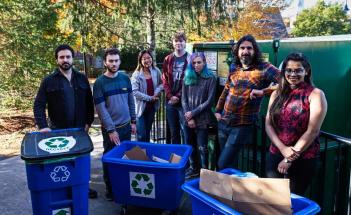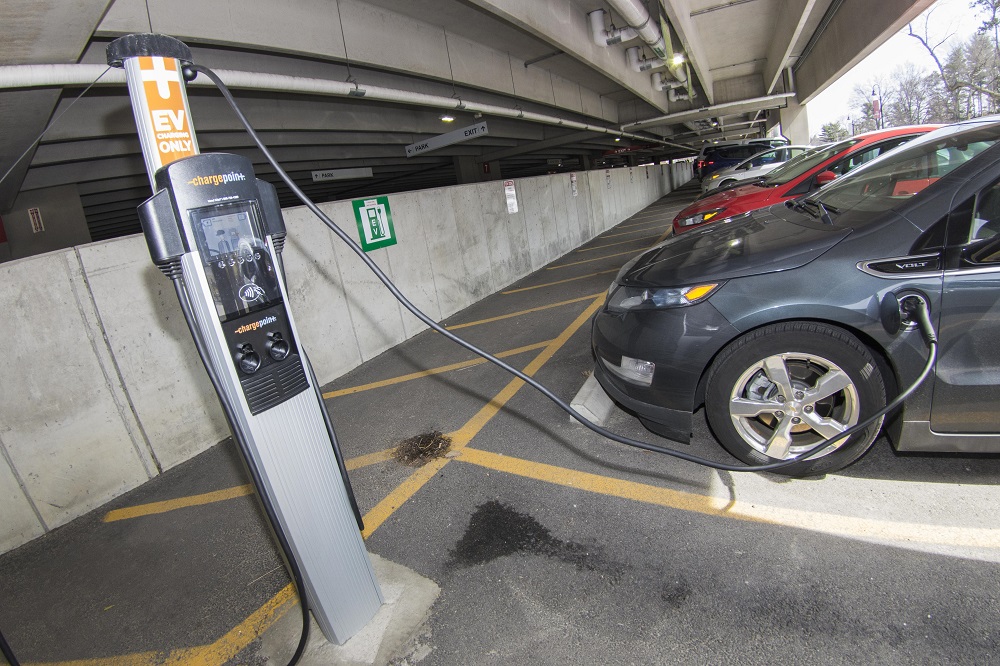When it comes to environmental stewardship and sustainability, WPI is more than committed. The university adopted its second five-year Sustainability Plan last fall outlining goals and objectives in a document issued after months of work and input of people from all academic disciplines and institutional services.
The first plan was implemented in 2014 and has served as a guide to advance sustainability at WPI. Over the intervening years, substantial progress has been made—with many goal areas exceeding expectations. This foundation sets the stage for the new plan to take the university’s efforts even further and will firmly establish WPI as a leader in sustainability.
Leadership and Guidance
To formulate the new plan, four working groups met to brainstorm and review ideas, and to sort through input from the larger WPI community. The initiative was led by the Office of Sustainability, in coordination with WPI’s Sustainability Operations Advisory Committee and various working groups. The Office of Sustainability, directed by Paul Mathisen, associate professor of civil and environmental engineering, provides leadership, direction, and support for the implementation of the sustainability plan and sustainability programs at the university. The office will coordinate and will tap into resources across WPI’s administrative, academic, and facilities areas to achieve the plan’s goals.
Three Core Pillars and Four Major Goal Areas
In keeping with WPI’s holistic approach, the sustainability plan promotes literacy, engagement, and responsibility throughout the WPI community and beyond to local, regional, and global communities. Sustainability involves three complementary core pillars: environmental stewardship, economic security, and social justice. All three areas are needed to provide people with access to the means to support themselves and their families and to do so with the respect, rights, and opportunities to which all are entitled.




